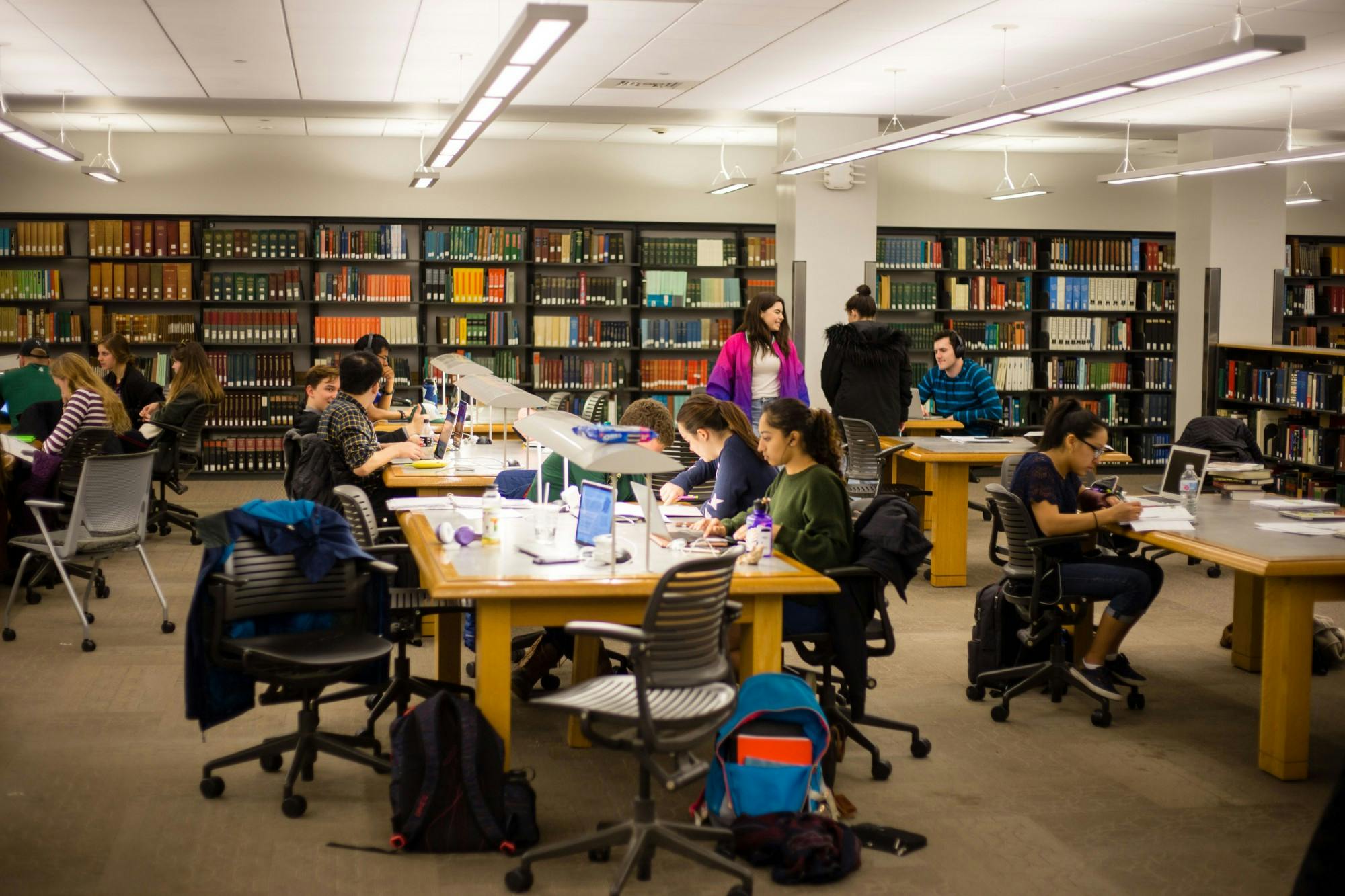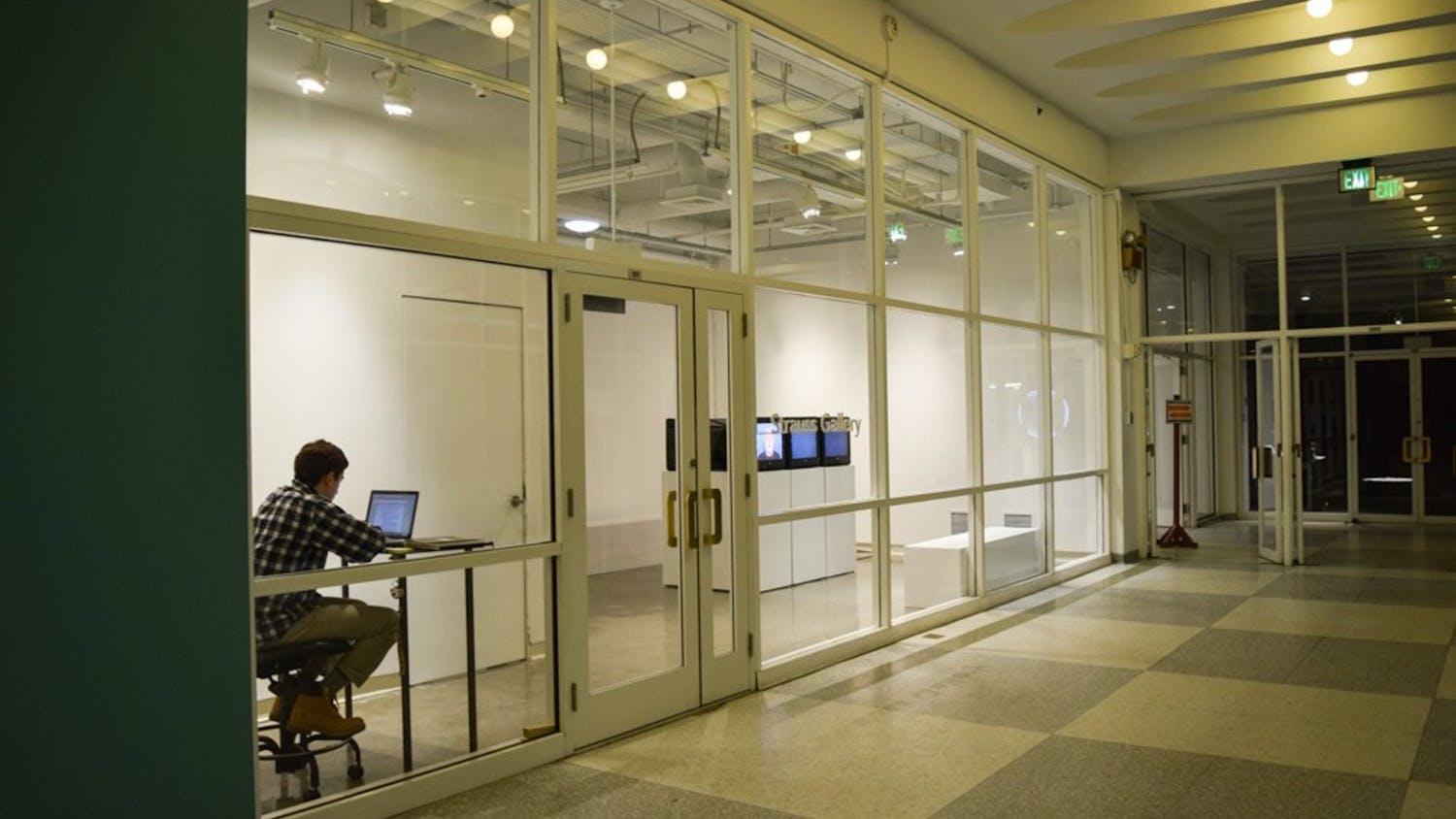Students seeking academic assistance this fall will have to adapt to changes in Tutor Clearinghouse offerings. One-on-one tutoring has been dramatically reduced, and residential experts, study groups and conversation partners have all been eliminated due to budgetary constraints. In place of these programs, the Tutor Clearinghouse is prioritizing group tutoring.
According to assistant director of the Academic Skills Center and director of Tutor Clearinghouse Holly Tracy-Potter, the Tutor Clearinghouse began to make changes to its offerings this spring. Since then, individual tutoring has been offered only on a very limited basis for students who demonstrate a particular need, a reduction from past years, Tracy-Potter said.
Meanwhile, the Tutor Clearinghouse is now offering the vast majority of students virtual group tutoring for classes with a historically high number of tutor requests, such as introductory STEM, social science and language classes.
Additionally, the number of free individual tutoring hours for students has been reduced from three hours a week to one. Group tutoring sessions are an hour and a half, and they are free of charge.
Despite the timing of the changes, Tracy-Potter said that these decisions were not made as a result of the pandemic.
In 2017, the Tutor Clearinghouse moved to provide up to three hours per week of free tutoring to everyone, rather than only those on financial aid. Tracy-Potter said that the Tutor Clearinghouse was spending “way over” its budget “for years.”
“[T]he College for quite some time found ways to cover the excess amounts of money that we spent outside of our budget,” Tracy-Potter said. “... The pandemic just sort of put the last nail on the coffin.”
Sara Kay ’22, a former computer science tutor and peer academic enrichment intern in the Academic Skills Center, said that she sees these cuts as highly detrimental to students’ success.
According to Kay, tutoring is “the worst thing that you can cut when students need academic support and are in situations where they need individualized academic support,” as she said many do during COVID-19 and remote learning.
Tracy-Potter said that she hopes that group tutoring will encourage Dartmouth students to be more vulnerable with each other about their academic struggles. Additionally, she hopes that it will give students the opportunity to prepare for group work in the future.
“Hopefully [students] find out that working in a group is actually more rewarding and beneficial [than one-on-one tutoring],” Tracy-Potter said.
She said that the choice to eliminate resident experts and study groups was made because the resources were not widely used. Although she is aware that some students may have concerns about group tutoring, she hopes that they are able to embrace it.
Kay said that she is also concerned about the lack of tutoring offerings for computer science classes, such as COSC 1, “Introduction to Programming and Computation,” and COSC 10, “Problem Solving via Object-Oriented Programming.”
“I don't know how people are supposed to get any academic help,” Kay said. “Even if you were to pay the cost yourself, there's just no system in place through the College [anymore].”
According to Tracy-Potter, the heads of the computer science department were not comfortable with group tutoring sessions due to potential honor code violations through screen-sharing of code during sessions.
Student Assembly president Cait McGovern and vice president Johnathan Briffault said they are opposed to the changes, worrying that the focus on group tutoring could put students in need of help in uncomfortable situations that are detrimental to their academic success.
“We're a little bit worried that if students are uncomfortable going to those tutoring sessions, their academic work will suffer and they won't get the benefits that the school argues that they would,” McGovern said.
Although Briffault said that he understands the benefits of group tutoring, he also emphasized the need for individual aid when students are in unique situations.
McGovern said that she worries that students in different time zones will be disadvantaged by group learning, as scheduled times may be inconvenient for them. Tracy-Potter said that she is attempting to schedule groups in time slots that are reachable by the majority of students, but that it is impossible to cater to everyone.
“I'm trying to schedule tutoring groups that occur at a time during [the] Eastern time zone that is manageable six hours before or six hours after, because that seems to be the range that we have,” Tracy-Potter said.
Students living internationally are not the only ones who are likely to be affected by the changes. Briffault expressed concerns that first-generation and low-income students and freshmen will be put at a greater disadvantage by the shift in priorities.
“Not only will low-income students be affected because they can't necessarily afford the additional resources that they'll need to succeed, but first-generation students who don't have access to a family background that can tutor them in these subjects or can provide help on accessing resources — those students are going to be at an immense disadvantage here,” Briffault said.
He added that new students may also suffer an outsized impact from the changes, as new students may lack “the connections that they need to get help.”
Tracy-Potter said that the center sent a flyer with updated tutoring information in campus-wide emails and to all the students who are enrolled in classes with group tutoring available.
Kay criticized the Academic Skills Center’s communication with the campus community. Briffault agreed that there was a lack of transparency in the decision-making process and that Tutor Clearinghouse did not seek widespread feedback from students.
“This … was not a policy change in which they sought any feedback from students — not SA or, as far as we can tell, any tutors who were employed by them or any students who have used the resource,” Briffault said.
Tracy-Potter said that she has received little negative feedback from students in the past two terms.
“I would hope that the upper class students — sophomores, juniors and seniors — give it a shot and [aren’t] negatively influenced by what they don't have any longer, but [instead] look at this as an opportunity to practice skills and group development,” Tracy-Potter said.




